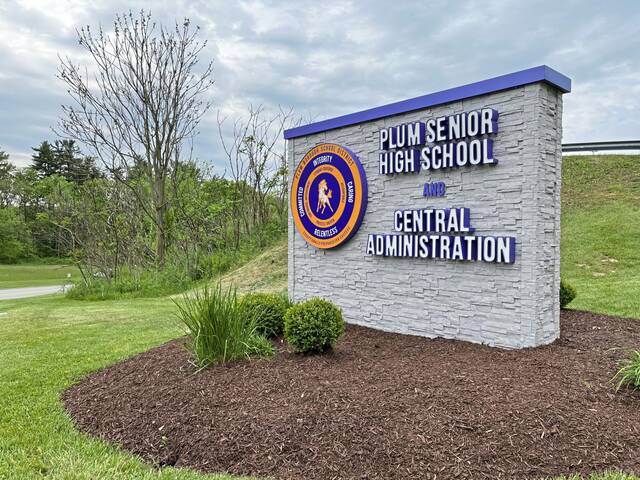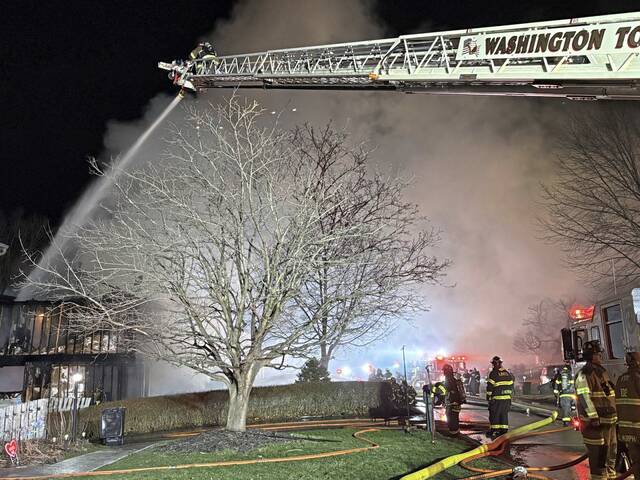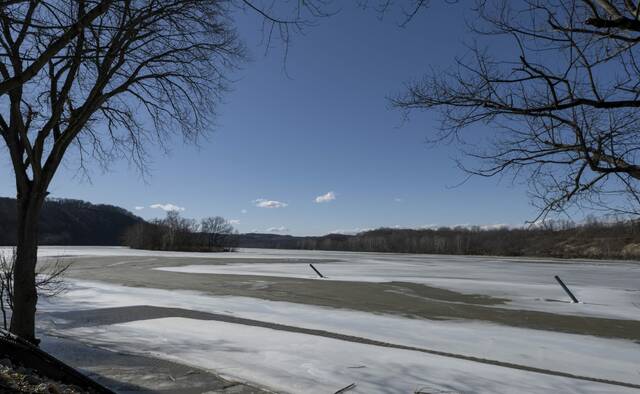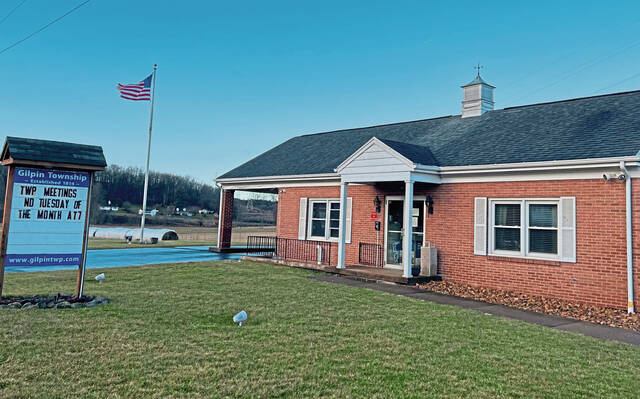A 2.5% property tax increase is included in the working draft of the Plum School District’s 2025-26 school year budget, Business Manager Ryan Manzer told the board Tuesday.
That’s less than half of the 6.2% increase that district property owners were hit with for the current school year, and reflects a stated intention of moving the district to smaller increases every year instead of forgoing them for a number of years only for a large increase to come along.
“We have been trying for a long time, many years, to get to being at a place where we felt comfortable being able to do an incremental increase, to be able to provide our taxpayers without a burden, but also understanding that that minimal increase is going to have to happen year over year,” board President Angela Anderson said. “Last year, nobody was happy about having to do what we had to do to get us to the place that we were at.”
For a home at the school district’s median assessed value of $117,500, a 2.5% increase would increase the annual tax bill by $69 to about $2,817, before any exclusions or discounts are applied.
The district is able to increase property taxes by up to 5.3% under its state-imposed inflation limit. The school board voted in December to not exceed that limit.
The limit for the current school year was 7%, which Manzer said was elevated from the district’s historical average of 3% to 4%.
Superintendent Rick Walsh said administrators will work to get a tax increase as low as possible, but he and Manzer each noted that, as Walsh said, “You can’t fight inflation.”
Manzer pointed to the cumulative effect of inflation. He stressed that while inflation increases the district’s spending, it doesn’t necessarily increase its revenue.
“If you try to fight inflation … you’re going to lose that battle. It’s relentless,” he said. “You have to make sure you’re incrementing your budget every year because, otherwise, you’ll fall behind. And you’ll have to catch up at some point because that’s not going to stop.”
The board and administrators discussed working to lower the increase to 2%, but it is likely not feasible, Anderson said.
Walsh said it could impact personnel, which he did not want to discuss publicly, or require cutting services.
“I think it’s detrimental,” Anderson said.
As presented by Manzer, the district currently projects spending about $78.2 million for the 2025-26 school year, which is about $400,000 over the projected revenue of $77.8 million.
While the district’s revenue is projected to increase by a net of about $3.3 million, expenses are rising by about $3.9 million, according to Manzer’s presentation.
State revenue is expected to increase by about $1.8 million and local revenue by about $1.7 million, but there is an $85,000 decrease in federal revenue.
Local revenue increases include a $1 million increase in current real estate taxes, $335,000 in interest and $265,000 in current and delinquent earned income tax.
On the spending side, the district is expecting a $2.8 million increase in personnel costs, which Manzer said makes up 68% of the district’s budget. Department budgets are increasing by about $1.1 million, including $476,000 for technology and $412,000 for debt service.
The district has reserves of $15.9 million, which Manzer described as “very healthy.” But Walsh cautioned against using it, noting it factored into the district’s improved bond rating that saved taxpayers $1.7 million in a recent borrowing.
“Draining or lowering that fund balance is a concern,” Walsh said. “It could cost us more money in other ways in regards to borrowing and how we operate down the road.”
No cuts to students services or opportunities are being recommended, Walsh said. He noted that the district has not replaced some retiring teachers over the past two years, while moving others to ensure the district is appropriately staffed to meet needs.
“We believe that we’re moving toward a very fiscally responsible budget that maintains the current service level,” he said. “But we will continue to scrutinize and look for opportunities to be fiscally responsible.”
The board is expected to vote on the proposed final budget on April 22 and the final budget on May 27.








